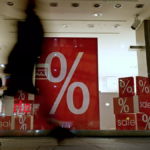SOPHIA. Right and liberals are narrowly separated after new parliamentary elections were held in Bulgaria on Sunday, a vote marked by the rise of a nationalist pro-Russian faction in the shadow of the war in Ukraine, as well as a shocking level of abstention.
This is the worst case scenario, at least as Evelina Slavkova, an analyst at the Trend research center, sees it: “the more ambiguous the result, the more difficult it will be to form a stable government,” she explained to the Nova TV network last night, after the fifth electoral process in Bulgaria in just two years.
Former prime minister Boyko Borisov’s right-wing GERB party is credited with a narrow lead (24-26%) over the liberal ballot under centrist former leader Kirill Petkov (23-24%), according to forecasts by four polling institutes based on early partial results.
The official results will not be announced until later in the week.
The hopes raised by the wave of mass anti-corruption protests in the summer of 2020 seem a distant memory in the country of 6.5 million, the EU and NATO’s poorest member state, mired in a costly political crisis unprecedented since the end of socialism in 1990.
“No trust in anyone”
After the fall of Boyko Borissov after a decade in power, the various factions that succeeded him were unable to form a lasting governing coalition.
The disorganization of the political scene accelerated when the war in Ukraine broke out in a society historically and culturally close to Moscow, divided over military aid to Kiev.
The new nationalist, pro-Russian Vazrazdane (“Renaissance”) faction took advantage of the geopolitical environment to continue its rise: it garnered 13-14% of the vote, up from 10% in the October election.
He rejects any supply of arms to Kiev and openly aligns himself with the Kremlin, as once did the Socialists (SKB, 9-10% of the vote), historical heirs of the communist party that once ruled the Balkan country.
Abstention remained at an unimaginable high yesterday, although it was slightly lower than in the previous vote: the turnout is estimated to have barely reached 40%.
And those who went to vote did not hide that their patience was at its limits.
“I wish for a stable government, you understand?” said Bojan Sapunov, a 79-year-old pensioner, exhausted by the succession of interim governments, while Krasimir Naydenov, a private employee, 57, said he no longer had “any trust in anyone”. .
For Andrey Raichev of the Gallup International institute, “the war in Ukraine, the soaring inflation, the pressure of the Western partners” should in theory push the major political powers, which profess to be close to the West, to come to an agreement.
Impossible to get along?
Lukas Matsek, a researcher at the Jacques Delors Institute for Central and Eastern Europe, “doubts” whether there can be “Boyko Borisov’s withdrawal” from the Bulgarian political scene, while he describes as “worrying” what he describes as an “electoral spiral ».
Bulgaria is “in the same situation as other central European countries: a former leader trying to cling to power while the other parties refuse to ally with him, without having any other large audience,” he says.
The person concerned, the Bulgarian right-wing former prime minister, warns against holding new elections. “It would be suicidal, most people want an end to the instability,” summed up Mr Borisov, 63, who went to vote in jeans.
The politician who once projected an image of a man of the people, but which was tarnished due to the suspicions against him of corruption, was unable to form a government in the autumn, due to the lack of allies, despite winning the elections.
His rival and sworn enemy Kirill Petkov, 42, says his aim is for Bulgaria to have “the life of a normal European country” and for its citizens to no longer be forced to migrate abroad.
If, as seems likely, this vote does not produce a clear winner either, and barring something else unforeseen, Bulgarians will have to endure yet another interim government named by President Rumen Radev, who personally says he opposes sending arms to Ukraine
Although Bulgarian munitions factories have been producing at a rapid pace since the Russian invasion of Ukrainian territory began and are indirectly exporting — through third parties — plenty of war material to Ukraine.
Source: EK

















Add Comment